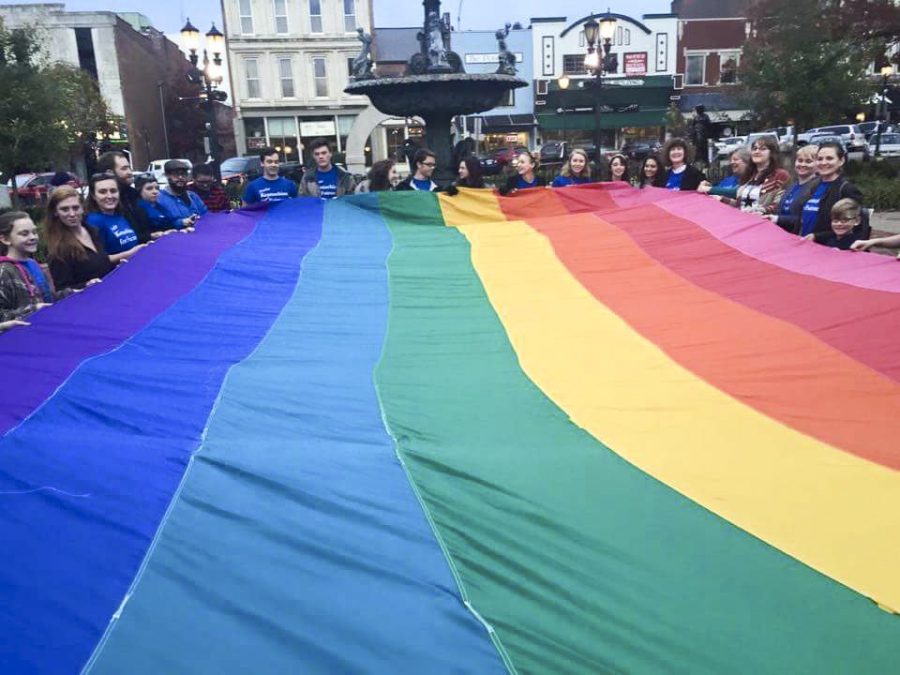BG Fairness continues fight for ordinance
February 18, 2016
Bowling Green is the largest city in Kentucky that does not have a fairness law to protect the LGBT community against discrimination, according to Patricia Minter, associate professor of History.
Minter is an active member of Bowling Green Fairness, which is a localization of the statewide campaign working to protect citizens against discrimination based on sexual orientation or gender identity.
The Bowling Green Fairness Campaign hopes to “build an inclusive community where all individuals are valued and empowered to reach their full potential.”
The Fairness Coalition brings this vision to Bowling Green by promoting public awareness of the problem. Minter said the coalition attends city commission meetings regularly to request that a fairness law be put on the agenda.
“The fairness ordinance we propose would add sexual orientation and gender identity as protected categories to existing civil rights laws,” Minter said.
Despite the coalition’s repeated attempts to request the local government consider the bill, Minter said Bowling Green continues to fall short in protecting its citizens from discrimination.
Because of this lack of legal protection, people can be discriminated against in housing, employment and other public accommodations. This means it’s legal in Bowling Green for people to be kicked out of apartments or fired from jobs simply because of their sexual orientation.
Owensboro Gatton Academy senior Lucas Knight is the coalition’s representative for WKU’s Student Government Association. Knight said he jumped at the chance to represent an organization with a cause he supports.
Although he has only been involved with Bowling Green Fairness for a little more than one semester, Knight said he has seen much support for the cause within the community.
“Sadly, the issue [of LGBT legal protection] has been frozen at the city commission level for some time now, but the opinion at the individual level continues to shift,” Knight said.
Knight said the lack of protections in Bowling Green does more than harm the victims of discrimination.
“It makes Bowling Green weaker as a whole,” Knight said. “It’s harder to keep educated workers in a community if there are policies that actively discriminate against a subset of these workers.”
Minter also testified to the brain drain result of discrimination.
“We’re seeing some of our best and brightest students decide they want to move to a place where they can be who they are,” Minter said. “We’re in the same place while the rest of the world has moved on.”
“It means that the minute you get off campus, you’re vulnerable,” Minter said, “and that’s not okay.”
Minter said she works everyday to change the laws that allow her students and others in Bowling Green to suffer from daily acts of discrimination.
Minter said a challenge of working in an antidiscrimination movement is that a fear of further discrimination prevents victims from telling their stories publicly.
“I feel a huge responsibility to help because they feel they must remain invisible,” Minter added. “I can speak for them and give them visibility.”




















![Megan Inman of Tennessee cries after embracing Drag performer and transgender advocate Jasmine St. James at the 9th Annual WKU Housing and Residence Life Drag Show at Knicely Conference Center on April 4, 2024. “[The community] was so warm and welcoming when I came out, if it wasn’t for the queens I wouldn’t be here,” Inman said.](https://wkuherald.com/wp-content/uploads/2024/04/smith_von_drag_3-600x419.jpg)





